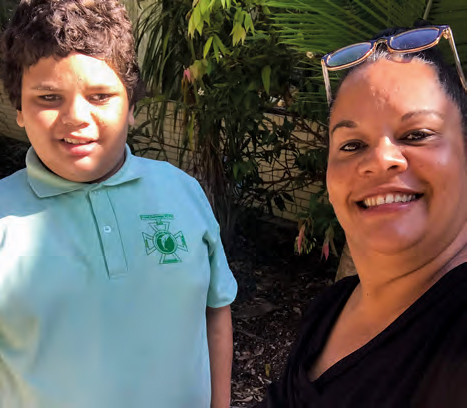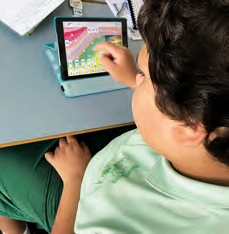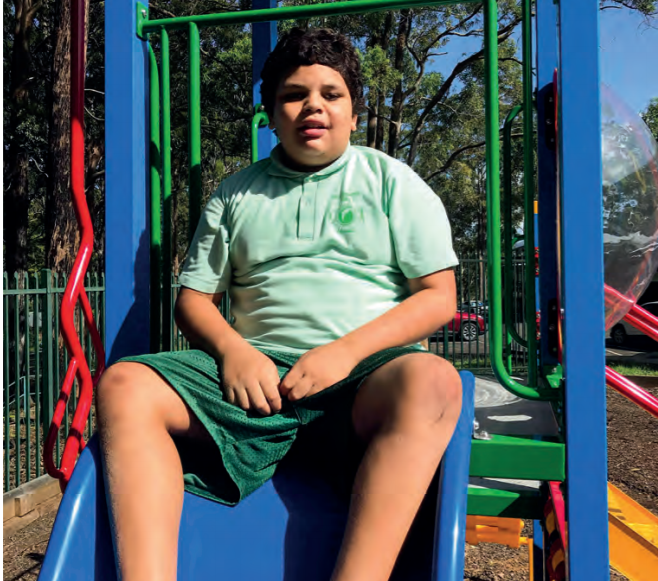“I didn’t know what autism or global developmental delay meant,” Aunty Pauline said. “It wasn’t spoken about when I was growing up.” In Australia, the number of people on the autism spectrum is an estimated to be one in 70, according to 2018 figures from Autism Spectrum Australia (Aspect).
The evidence demonstrates that early intervention remains key to supporting the achievement of optimal outcomes for children diagnosed with autism. However,
it also suggests that the number of Aboriginal and Torres Strait Islander children and families accessing support is disproportionately low.
Growing Early Minds (GEM) and Windaan – a service on the Mid North Coast of New South Wales delivering culturally-appropriate early intervention, allied health, primary health and disability services to Aboriginal families – are working in partnership with these communities to ensure they have access to the support they need.
Tyler, who lives in Nambucca Heads with Aunty Pauline and his 12-year-old brother Zade, was formally diagnosed with autism after “the lady at day care said his behaviour was different to the other kids and he was being a bit aggressive,” Aunty Pauline said.
Now nearly 11, Tyler has been receiving services through GEM and Windaan since August 2019. Aunty Pauline said he has made significant progress, particularly with challenging behaviours.

“He used to have meltdowns. He’d start smashing the TV, and slamming doors and windows,” she said.
Since working with Deb Fernando, Windaan’s applied behavioural analysis therapist, these have virtually ceased.
“It only took him a couple of visits to get used to Deb coming around and why they do certain activities,” she said.
Seeing different therapists has also increased Tyler’s social circles.
“Interacting with more people is better for him,” she said.
“He’s not so dependent on me. Before I used to have to hold his hand and make sure he got on the school bus, but now he waits out the front by himself.”
Tyler loves school and has been making progress with communication skills with help from Deb. He has won awards two years running, for literacy and citizenship.
His ability to express emotions is improving too.
“Before, he’d stand there and let you cuddle him,” Aunty Pauline said.
“These days, if he sees me and Deb having a hug, it will become a group hug!”

“It’s important to get to know what the families have been through – their struggles, their strengths –
and that you’re on the journey with them.”
Windaan also supports Tyler to attend group social outings.
“We had a day where we went to play games,” Windaan support worker Loretta Donovan said.
“Tyler played table tennis for the first time and he loved it.
“Our last outing was a golf driving range. I gave him a ball and talked to him about safety. He listened and had a go. It was a very proud moment.”
With Tyler accessing psychology from the GEM team, and Windaan providing comprehensive wrap- around services, this partnership has allowed delivery of targeted services to meet the needs of Tyler, his family and his community.
Aunty Pauline and Loretta agreed that cultural awareness is key to providing a successful service.
“It’s important to get to know what the families have been through – their struggles, their strengths – and that you’re on the journey with them,” Loretta said.
“It is this empathy understanding that allows the Windaan team to ensure that we provide services
that reflect the cultural needs of our Windaan clients.”
As for the future, Aunty Pauline said she prefers taking one day at a time. Tyler’s next big step will be starting high school in 2021.
www.windaan.org.au

